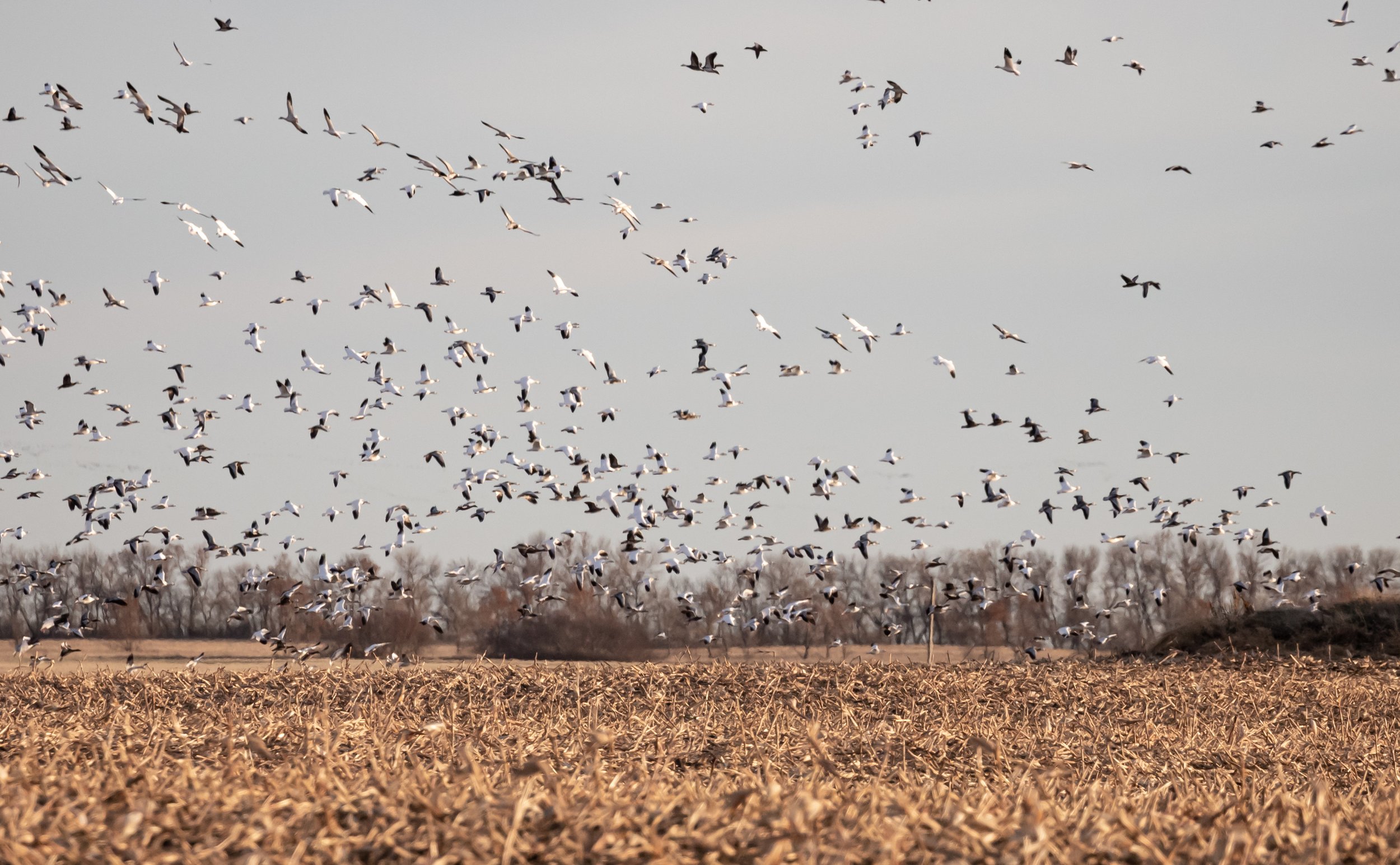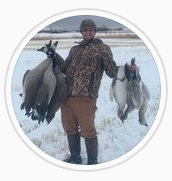5 Ways to Become a Better Waterfowler this Off-Season
Ryan Barnes for Split Reed
For duck and goose hunters, the end of waterfowl season seems to bring a sad sigh of relief. No more freezing cold mornings setting up decoys, no more stressful 4:30 AM boat rides, and no more worrying about this or that. It isn’t happy, but in some instances, it isn’t heartbreaking either. Waterfowl season is a rigorous, taxing, and draining event, and that’s part of the reason we all love it so much. However, when the dog days of summer set in, and hunters enjoy barbeques and long nights with friends, some of the skills that got refined or developed during the season are slowly slipping away. Remember, hunting takes practice, and practice needs to be repeated. No one has the luxury of being able to pick up right where they left off in September or October of the next year and expect to be perfectly dialed in. No matter how “seasoned” you are. There are still things to refine, learn, and better yourself to make sure you’re a more polished hunter than you were the season prior. Here are five ways to help you become a better waterfowler this off-season.
1. PRACTICE YOUR SHOOTING
I talked to multiple guides this year and all voiced the same complaint- “my clients can’t shoot!”. One even said he had to pack the hunt up early because his hunters were missing so many shots and educating too many birds. By no means am I claiming to be the best shot in the world, and I think all hunters tend to be a little cavalier in their abilities with a shotgun. However, when a shot presents itself that’s a touch more difficult, usually birds fly off unscathed. It would benefit hunters a great deal to spend a bit more time at the range to hone some of those shooting skills. Think back to a hunt this year where you missed a few birds that would have added to your bag limit, or gotten you to a hot breakfast that much earlier. I know I had a few. Going and shattering a few clay pigeons can be a fun night out with some hunting buddies, and can make you that much more lethal in the blind. I know of a few hunters who even pack a few spare duck loads just to give them a feel for shooting the faster-flying steel shot at a target. Becoming a better marksman means becoming a better hunter. So pay the fee, buy the clays, spend an hour or two every week or so at the range, and become a better shot. You’ll thank yourself when those ducks or geese that used to get away from you end up falling to the ground when you pull the trigger.
2. PRACTICE YOUR CALLING
Many hunters think that once they learn the basics on a call they’re good to go. The problem is every hunter thinks the same way. A basic greeting call, a few chuckles, a simple quack, and they don’t practice anything else. Take some time to practice on your calls. It’s important to learn new notes, especially for those blowing goose calls. When you can diversify your vocabulary on a call, and sound more realistic than the next guy, the birds will key in on you. I know that everyone says you can get by on the basics, but how realistic do you sound? Do you really sound like a duck? Do you really sound like a goose? Are your cadences realistic? If you bust out the lanyard every few days and run through a few sequences and really listen to how realistic you sound, you might be surprised, for better or worse. Record yourself, then listen. Make a few phone calls or send a few messages to call makers or guys who have devoted hours and hours every day blowing calls, and ask for a little help. There are plenty of hunters who can do the basics, but you want to set yourself apart from the rest. Learn some of the notes that are a bit more tricky. Learn a spit-note, learn a Cajun squeal. Learn a note that will turn ducks and geese because they haven’t heard it a million times before. Spend some time learning how to sound more realistic on your calls and it will bear good fruit in the hunts to come.
3. UPDATE YOUR GEAR
Your significant others might not be happy about this one, but there is no better time to update old waders, decoys, blinds, and other gear than during the off-season. Usually, things are on sale, and they’re in stock. If you wait until the season, or a few weeks before, you’re going to find yourself on a waitlist. I personally take all my decoys out of their bags, wipe them down with rags, and get an inventory of which ones I need to update. I sell off the “tired” ones or give them away to someone trying to get into the sport, then update them. I also do this with my blinds and other tools I use in the field. If something has been used to the point where it’s a little too hammered for my liking, I’ll go ahead and get rid of it and upgrade. This can be a tough business for some hunters who have a tendency to cling to old gear that has proven to be successful, and that’s fine. But if you’re still clinging to those first flambeau mallard decoys you got when you were sixteen that are now black and shiny, it might be time to set those somewhere special and look to update your spread. I know ducks used to decoy to painted coke bottles, and geese used to be fooled by car tires, but the game has changed. Now people are using stuffed birds and some of the most realistic carvings and paintings ever. It’s never a bad idea to upgrade your hunting tools to some of the proven “modern technology”. Ducks and geese aren’t stupid, make life easier on yourself, and have the best gear you can for hiding from birds and decoying them..
4. KNOCK SOME DOORS AND GET PERMISSION
If you want to get on land, do it when the landowner hasn’t had twenty other hunters ask for permission before you. Take out a few hundred bucks, wear some presentable clothing, take out the chew, and go knock on some doors and ask for permission to hunt in the coming fall. I’ve always found that I’ve had better success locking down fields in the off-season rather than during the swing of things. Obviously, there are plenty of times you have to ask during the season, but I know it works wonders when you can start early and foster relationships before the season starts, that way you have permission before anyone else takes a crack at it. I do have one caveat to this tip: if you ask in the summer, do it face to face! I’ve found that farmers, after getting bombarded by hunters all hunting season, don’t want to get a phone call during the summer from some stranger. Give them the courtesy of a face-to-face conversation, and possibly even a hundred-dollar handshake to sweeten the deal. If you’re saying to yourself, “Well that’s stupid, how do you even know if birds will be there in the season?”. You’re a hunter, you should know which fields will produce. Corn, wheat, peanuts, soy, and rice to name a few, if you see fields in the summer planted to those crops, there’s a good chance it will hunt in the fall. And if it doesn’t, that’s part of the gamble you have to take. Just remember, getting permission now, will put you ahead of all the hunters who wait until the night before the hunt during the season.
5. READ!
Hunters of all ages and experience would benefit greatly from reading a bit more. Whether they read articles in magazines on duck populations, or the works of George Bird Grinnell to help them deepen their appreciation for this great sport. There are so many great lessons to learn in the works of authors like Worth Mathewson, Van Campen Heilner, Robert Ruark, Robert Dray, and multiple others that can help hunters not only learn new tactics but maybe “unlearn” a few things that are unbecoming. Reading allows anyone to learn more about something they enjoy, hunters can sit down with whatever medium they might enjoy, be it a book, magazine, or online publication, and learn information that will help them in some form or fashion become better hunters. It gives all waterfowlers the ability to go into the marsh the next year with a better understanding of the birds they’re chasing, and the manner in which they are doing it. If you sit down and read, you’ll become a more knowledgeable hunter, as well as have a better appreciation of the hunting you’re doing.
These five tips aren’t limited to anyone’s success. Only you know what can help you become a better hunter, but these tips are ones that I found have made me, as well as many others successful in the field. From shooting better, to having a better appreciation of the birds we shoot. Taking these tips and implementing them will allow you to enjoy this upcoming season, and many more after!



